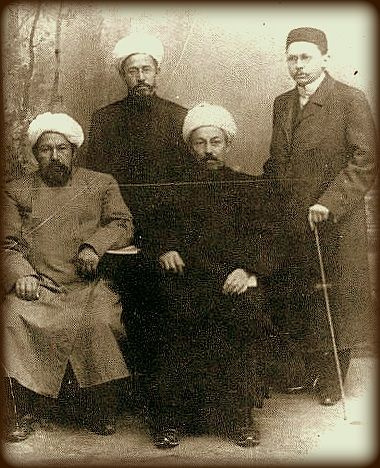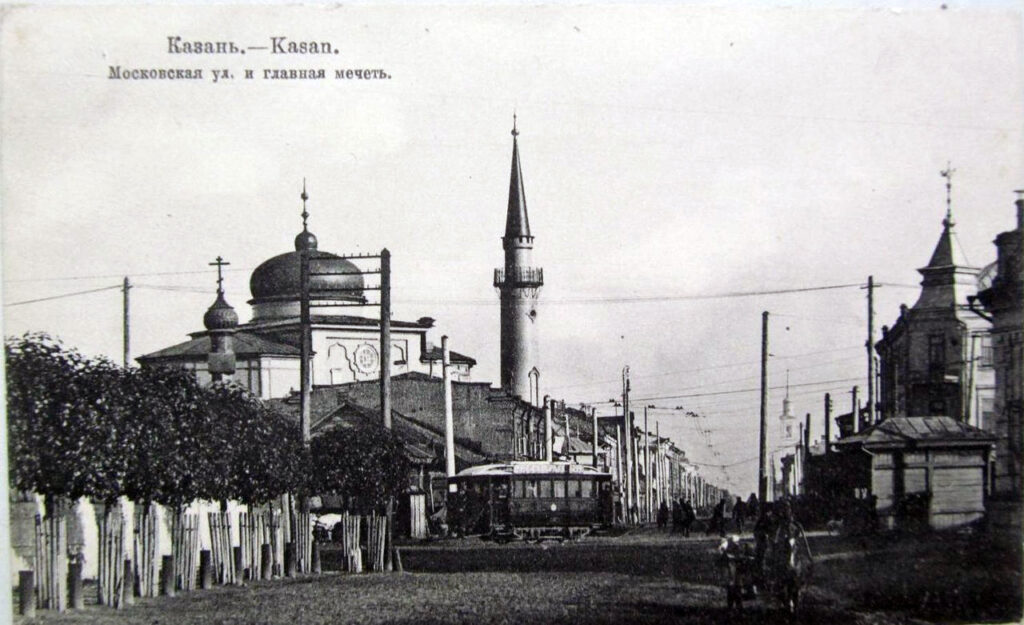First-guild merchant, philanthropist Abdulla Mukhametyusupovich Apanayev

First-guild merchant Abdulla Mukhametyusupovich Apanayev (1873-28.09.1937). One of the founders of the Apanayevs and the Kazakovs Commercial and Industrial Partnership. A large proprietor. He is known as an active public figure: a member of the City Duma, a member of four commissions under the city council, a member of the Provincial Guardianship of Orphanages. In 1913, A. M-Yu. Apanayev came up with a very interesting initiative. He proposed to create a National Museum, the funds of which would consist of ancient books, manuscripts and other relics preserved by the ancient Tatar families of Kazan. It is also known that A. M-Yu. Apanayev showed a keen interest in the development of national education and culture. It was on his advice and, obviously, not without his help that the first Tatar library under the title “Kitaphanai Islamia” and the library of the Oriental Club began to be systematically replenished with new editions and works of Russian classics. He was also engaged in charity. In 1916, the merchant donated a plot of land belonging to him in the amount of 40 tithes located near the village of Zyuzino of the Spassky district to the needs of the 2nd Cathedral mosque of Kazan.
Abdulla Apanayev was married to a hereditary honorary citizen, Zuleikha Mukhametshakirovna Kazakova. Their daughter Gaisha had a higher medical education and was considered the most beautiful girl in Muslim Kazan. It was in her honor that the future husband of the beautiful woman, the famous writer Gali Rakhim, by the way, who also came from a rich merchant family, wrote a beautiful poem “The Cuckoo”, which, together with the melody of the same name by composer S. Gabashi, turned into a popular Tatar romance until now. Gaisha Apanayeva, who had good vocal skills, became his first performer at one of the literary and musical evenings held by the advanced Tatar youth.
After the revolution, the fate of Abdulla Mukhametyusupovich Apanayev and his children turned out tragically. Son Yakub immigrated to Turkey. After the arrest of her husband Gali Rahim, daughter Gaisha left for Baku, where she married a prominent public figure, scientist Najib Khalfin. However, he was subsequently repressed. Abdulla Mukhametyusupovich himself was sent to camps in 1931 for a failed attempt to leave the USSR, and in 1937, barely released from prison, he received his last sentence, which was carried out on September 28 of the same year.
Other publications
All publicationsOctober 20
Galeyev Mosque – «The Fifth Cathedral»
A monument of Tatar religious architecture of the late 18th-19th centuries. One of the largest mosques of pre-revolutionary Kazan, preserving the stylistic features of classicist architecture.

December 15th
The Nurulla Mosque – “Sennaya” (Eng. “Hay”), “Yunusovskaya”, “The Seventh Cathedral”
The Nurulla Mosque or the Seventh Cathedral is a religious building, erected according to the project of the well-known architect A. K. Loman on the site of the ancient Haymarket.

